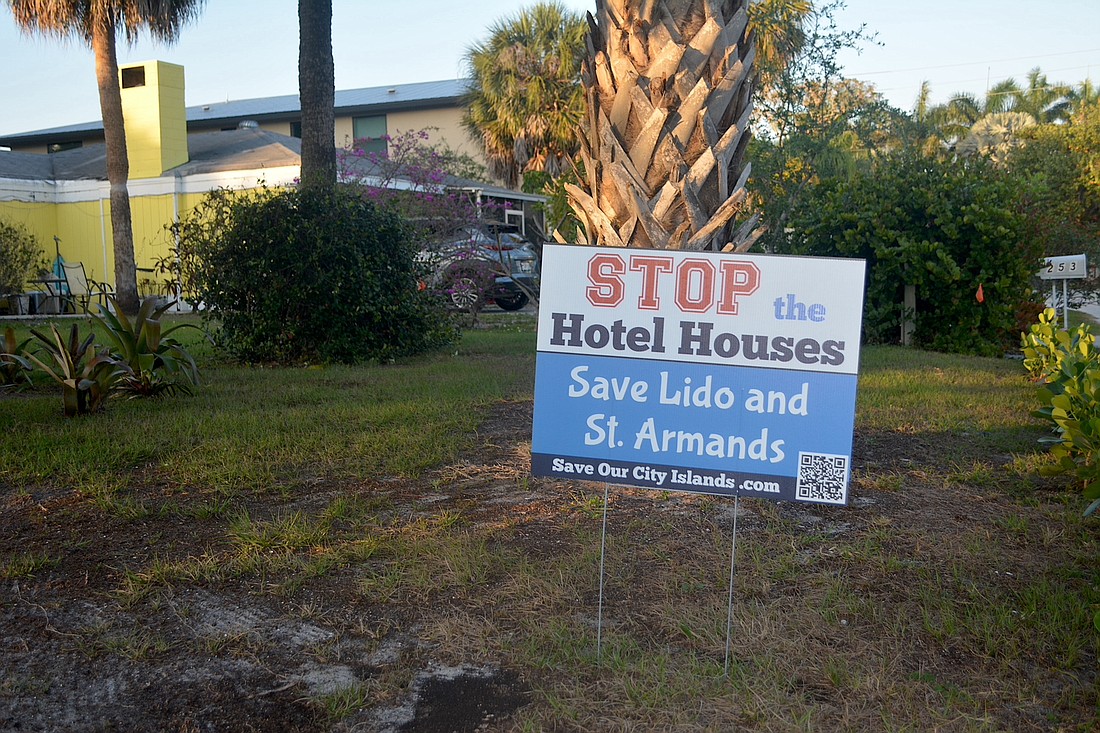- May 13, 2025
-
-
Loading

Loading

Following a 4-1 vote on first reading, it appears a citywide expansion of Sarasota’s vacation rental ordinance is inevitable.
During the city commissioners' discussion at Monday's meeting, though, Vice Mayor Liz Alpert sounded the following warning for residents of established mainland neighborhoods.
Don’t expect a requirement to register homes used for short-term rentals and pay fees to make them to go away. And, don’t expect the ordinance to make wholesale improvements to disruptions of an otherwise bucolic quality of life.
“This doesn't prevent anybody from having a vacation rental,” Alpert said. “The only thing it adds is the layer of the registration and a designated person to call, and I think that's a good thing. I think it's a good thing to have inspections and certain safety requirements for businesses.”
For the most part, they are businesses, and that they operate on neighborhood streets has resulted in a steady flow of complaints to staff and commissioners. With more than 700 homes operating as vacation rentals either part-time or full-time in the city, staff told commissioners Monday that subjecting them to registrations, renewals, inspections, taxes and fees puts them in the city’s database and helps assist in regulatory enforcement.
Chief among the the regulations is a minimum stay of seven nights.
“You have a solid code requirement of seven days and seven nights, That is the issue,” said City Manager Marlon Brown, referring to a map that shows vacation rentals operating throughout the city. “If you look at the map, you will see the number of properties that are not compliant.”
Erik Arroyo, the lone commissioner to dissent, said he wasn’t convinced expanding the ordinance would solve any of the problems voiced by residents.
“These are not mega corporations,” Arroyo said of mainland vacation rentals. “If you had an LLC-owned property, I completely understand that. But that's just not the vast majority of the short-term rentals, and an ordinance that was intended to be regulatory for hotel houses, which were a very big problem, has turned into an ordinance that targets short-term rentals in general, which are not what we're talking about.”
Implementing the expansion will come at a cost, likely upwards of three new staff members to register and inspect properties and monitor regulatory compliance. A new fee schedule for vacation rentals was approved by a 4-1 vote, with Arroyo opposed, on first reading. In the likely event it is approved on second reading, staff estimates the program should pay for itself. If not, future adjustments may be made.
Staff estimated the program would cost $315,874 per year. That includes adding three new employees at current staff salary plus Granicus, the web-crawling software used by the city to identify properties operating as short-term rental. Currently the cost to the city is $130,689 to register, inspect and monitor approximately 140 properties on the barrier islands within the city limit.
Commissioners were in agreement that the fee structure will need to be revisited to ensure all associated fees cover the city’s cost should the first-year projections of $88,000 in revenue over expenses change over time.
“The taxpayer should not be bearing the burden of this cost,” said Commissioner Jen Ahearn-Koch. “However in my discussions with staff, because we don't know how many and what it's going to look like as far as registration goes, in an abundance of caution of overdoing it they explained that what they want to do is the first year we'll have that $88,000 and then we can monitor it every year thereafter. And if it looks like we're going to be in trouble and the citizens will bear that cost we can go back and change those fees.”
Some speakers during public comment expressed concern that the ordinance would target owner-occupied homes with rooms for rent. Koch assured they are not the subject of the ordinance.
“We all know the feedback we've been getting from all the neighborhoods in the city about the impact these hotel houses have been having not only on the barrier islands, but throughout all of the neighborhoods,” Ahearn-Koch said. “I just want to be crystal clear about what it is not. It's not homeowner-occupied Airbnbs. It's really, targeted at the ones that are really impacting our neighborhoods and their quality of life.”
During public comment period, Lido Key resident Carl Shoffstall told commissioners decisions in the past have “destroyed” the beach community. Alpert later explained that cities are exempted from prohibiting vacations rentals by state statute, with the only local authority granted to regulate them.
“I think people speaking today and people who have been writing about this think this is going to stop them from coming,” Alpert said. “If there's a market for it, people are going to do it. It's not going to stop vacation rentals. It just may help in the enforcement and that's the only thing.”